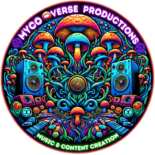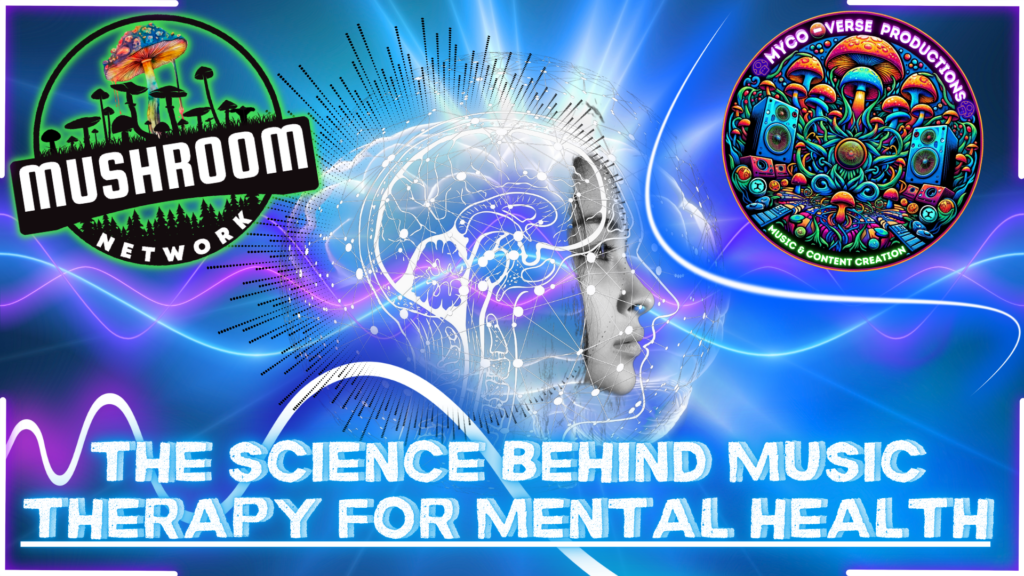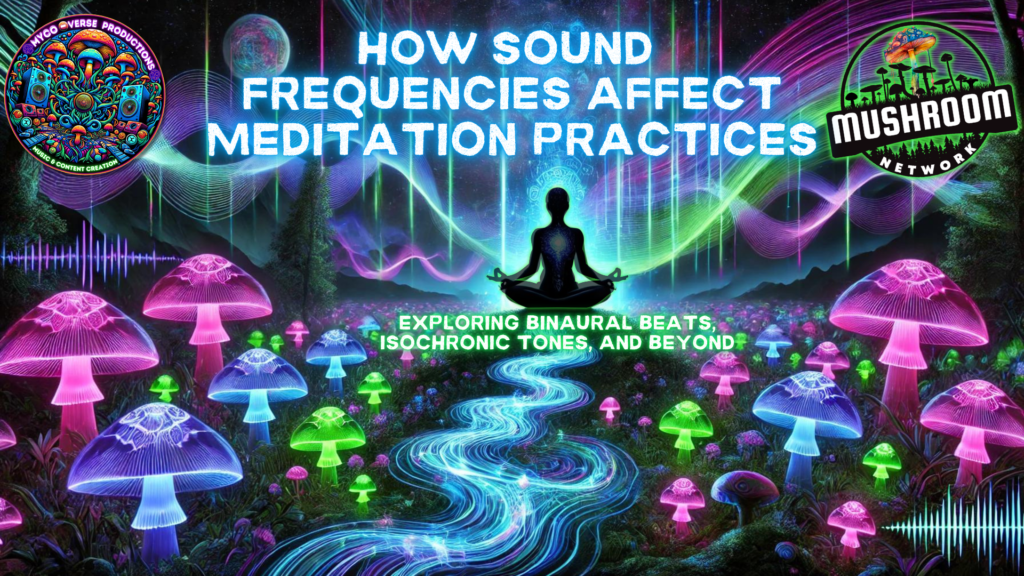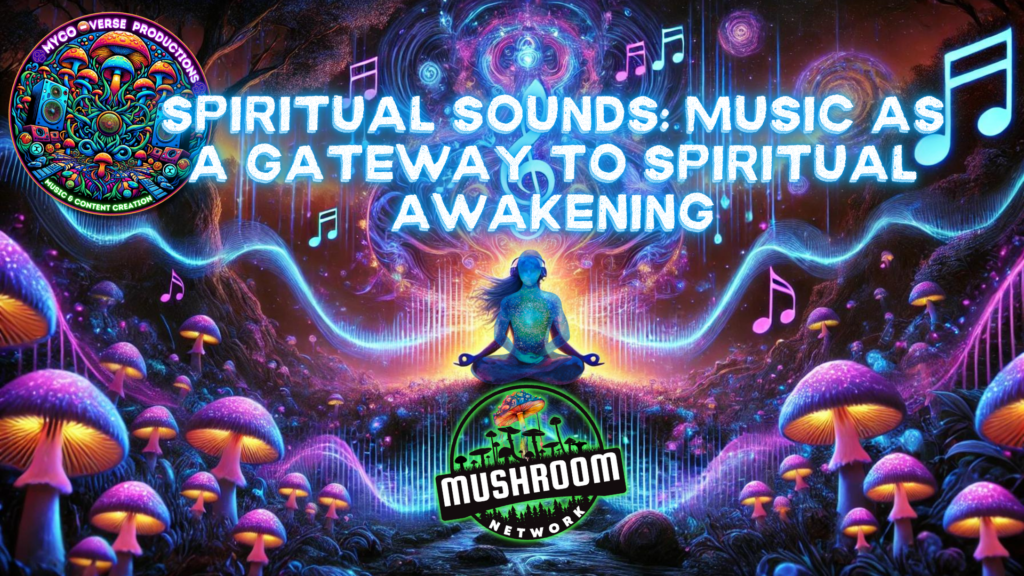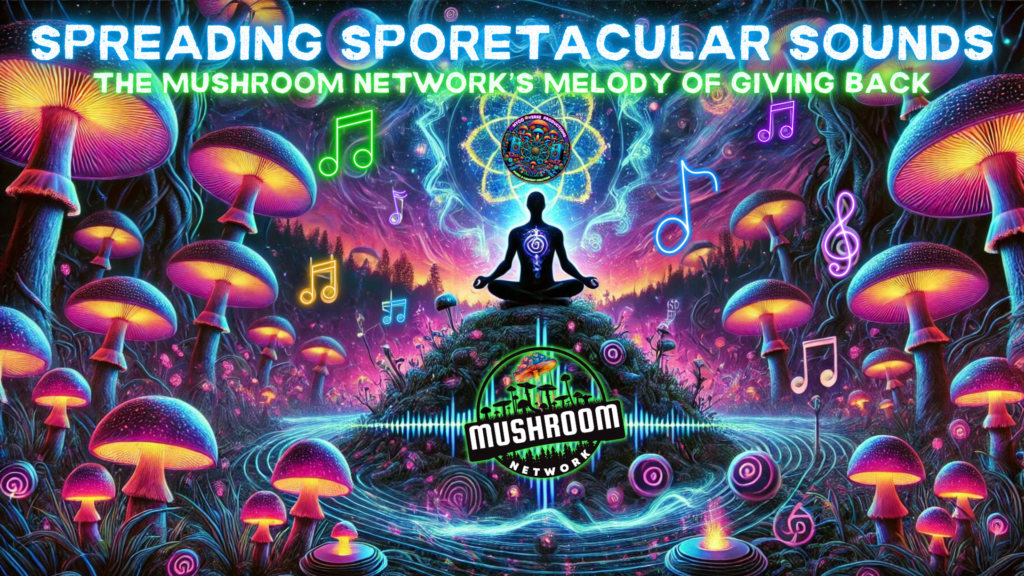“Our Myco-Verse symphony is so catchy, even the mushrooms dance.”
In a world full of endless notifications, buzzing gadgets, and the stress of daily life, sleep can often feel elusive. If counting sheep just isn’t cutting it, you might want to consider a more harmonious solution: music. The connection between music and sleep is well-documented, with calming tunes and soundscapes acting as a natural sleep aid for countless people. But how exactly can music improve your sleep quality? Let’s explore the science and provide practical tips for tuning in and zoning out.

The Science Behind Music and Sleep
The benefits of using music for sleep go far beyond simple relaxation. When you listen to calming music, your body responds in ways that mirror the stages of preparing for sleep. Here’s a closer look at how your body reacts:
- Slower Heart Rate: Calming music can reduce your heart rate, which is essential for entering deeper stages of sleep.
- Lower Blood Pressure: Gentle tunes help lower blood pressure by triggering relaxation responses, which is important for your overall cardiovascular health.
- Reduced Stress Hormones: Music can lower cortisol levels, the stress hormone responsible for those anxious thoughts that keep you tossing and turning.
When paired with good sleep hygiene, music is a natural way to create the perfect sleep environment without the need for medication or supplements. Now that we know how it works, let’s dive into some practical ways you can use music to improve your nightly rest.

1) Create a Sleep Playlist
Not all music is created equal when it comes to sleep. The genre, tempo, and instruments used can all affect how well a track helps you relax. Look for music that has a slower tempo, ideally around 60 to 80 beats per minute, which mirrors the natural rhythm of your heart when you’re in a state of rest.
Genres to Consider:
- Classical music (particularly pieces with string instruments)
- Ambient music (soft, atmospheric sounds)
- Lo-fi beats (for those who prefer a touch of rhythm without overstimulation)
- Nature soundscapes (bird songs, ocean waves, or rain)
Don’t have the time to curate a playlist yourself? Streaming platforms like Spotify and YouTube are full of pre-made sleep playlists, including some by The Mushroom Network, offering mellow blends of sound and mycelium-inspired tunes to help you drift off.

2) Optimize Your Environment with Music
To fully experience the sleep-enhancing power of music, it’s important to create a sound-friendly environment. Here are some tips:
- Use a Bluetooth speaker or sound machine for high-quality sound that fills the room without needing to wear headphones.
- Set a sleep timer so the music stops after you’ve fallen asleep. Many music apps and devices have this feature, preventing you from waking up to a loud tune in the middle of the night.
- Dim the lights or better yet, turn them off completely to reinforce your body’s natural circadian rhythm.
By creating an atmosphere that promotes sleep, you’ll naturally find yourself feeling more relaxed.

3) Incorporate Music into Your Bedtime Routine
Much like brushing your teeth or reading a book, listening to calming music can become a regular part of your nightly routine. Establishing a routine signals to your brain that it’s time to wind down. Try these steps:
- Start 30-60 minutes before bed. During this time, avoid any stimulating activities (like scrolling through social media) and play soft, slow music that helps your mind and body unwind.
- Practice mindfulness or deep breathing while listening to music. Focus on the rhythm of the music, or match your breath to the tempo. This combination can have a meditative effect, easing you into a more restful state.
- Pair music with other relaxing activities like reading, journaling, or even a warm bath. The goal is to ease into the evening with an experience that nurtures both mind and body.

4) Try Soundscapes for Sleep
If music isn’t quite your thing, soundscapes—audio environments that mimic natural sounds—are another great option. These recordings often include gentle rainfall, ocean waves, rustling leaves, or even white noise. Here’s how soundscapes can help:
- Masking Background Noise: Soundscapes are excellent at drowning out disruptive noises like traffic, barking dogs, or noisy neighbors.
- Improving Focus: For some, the repetitive nature of soundscapes can act as a mental anchor, keeping the mind from wandering and helping focus on sleep.
For a nature-inspired twist, check out mushroom-themed soundscapes available on platforms like The Mushroom Network, which blend tranquil forest noises with light, calming rhythms, perfect for a deep, restful sleep.

5) The Power of Consistency
The key to reaping the benefits of music or soundscapes for sleep is consistency. Much like building any new habit, using music for sleep will be most effective when it becomes part of your nightly routine. After several nights of incorporating calming music, your brain will begin to associate those sounds with sleep, making it easier to fall asleep faster and stay asleep longer.
A Final Note: Personalization is Key
What works for one person may not work for another, so don’t be afraid to experiment with different genres, tempos, or soundscapes to find what suits you best. Whether it’s a lo-fi beat, classical symphony, or the sound of rain hitting the roof, finding your perfect sleep soundtrack is a personal journey.
Tune in for Better Sleep
The journey toward better sleep can be as simple as pressing play. With its ability to relax the mind, lower stress, and create the ideal atmosphere for rest, music is a natural and enjoyable way to improve your sleep quality. If you’re looking to start right away, check out the peaceful soundscapes and relaxing tunes from The Mushroom Network on Spotify or subscribe to their YouTube Channel. Sweet dreams await!
The Mushroom Network and the Power of Music
As an artist, The Mushroom Network taps into this incredible healing potential of music. Rooted in a deep understanding of the challenges of mental health—including ADHD, PTSD, and anxiety—the music produced isn’t just sound; it’s therapy. Each track is a journey through struggle and triumph, a melodic reflection of life’s ups and downs.
Through the fusion of sound and the natural world, The Mushroom Network aims to connect listeners with their own inner struggles and offer solace through shared experiences. In a world filled with chaos, their music offers an escape—an invitation to heal, reflect, and, ultimately, grow.
So whether you’re seeking a way to manage stress, break through the fog of depression, or find peace amidst trauma, remember that music is more than just entertainment. It’s therapy, it’s healing, and it might just be the key to unlocking your mental wellness.
Want to explore the musical journey further?
Dive deeper with MVP’s #1 Artist – The Mushroom Network on Spotify or subscribe to our YouTube Channel.

“In the Myco-Verse, every fungal melody has a tale worth telling.”
